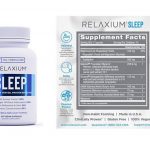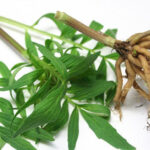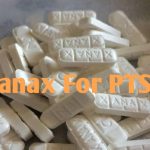Best Over the Counter Medicines for Anxiety and Stress

According to the American Psychological Association, there’s a fine line between stress and anxiety. Both are emotional responses, but stress is typically caused by an external trigger. The trigger can be short-term, such as a work deadline or a fight with a loved one or long-term, such as being unable to work, discrimination, or chronic illness. People under stress experience mental and physical symptoms, such as irritability, anger, fatigue, muscle pain, digestive troubles, and difficulty sleeping.
Anxiety, on the other hand, is defined by persistent, excessive worries that don’t go away even in the absence of a stressor. Anxiety leads to a nearly identical set of symptoms as stress: insomnia, difficulty concentrating, fatigue, muscle tension, and irritability.
Both mild stress and mild anxiety respond well to similar coping mechanisms. Physical activity, a nutritious and varied diet, and good sleep hygiene are a good starting point, but there are other coping mechanisms available. According to the latest data from the National Institute of Mental Health, 31% of Americans will experience an anxiety disorder during their lifetimes.
When stress or anxiety does not respond to coping mechanisms
If your stress or anxiety does not respond to these management techniques, or if you feel that either stress or anxiety are affecting your day-to-day functioning or mood, consider talking to a mental health professional who can help you understand what you are experiencing and provide you additional coping tools. For example, a psychologist can help determine whether you may have an anxiety disorder. Anxiety disorders differ from short-term feelings of anxiety in their severity and in how long they last: The anxiety typically persists for months and negatively affects mood and functioning. Some anxiety disorders, such as agoraphobia (the fear of public or open spaces), may cause the person to avoid enjoyable activities or make it difficult to keep a job.
To diagnose an anxiety disorder, a doctor performs a physical exam, asks about your symptoms, and recommends a blood test, which helps the doctor determine if another condition, such as hypothyroidism, may be causing your symptoms. Benzodiazepines (also known as tranquilizers) are the most widely prescribed type of medication for anxiety. Drugs such as Xanax (alprazolam), Klonopin (clonazepam), Valium (diazepam), and Ativan (lorazepam) work quickly, typically bringing relief within 30 minutes to an hour. However, some of these medications come with very unpleasant consequences, while some are listed on the list of dangerous pills for stress and anxiety.
Over The Counter Medicine For Anxiety And Stress
Over-the-counter medicine for anxiety and stress are medications that you can buy without a prescription. They are safe and effective for some types of anxiety and stress when you follow the directions on the label and as directed by your healthcare professional.
The best over-the-counter medicine for anxiety and stress include:
Magnesium
Magnesium plays an important role in supporting brain function and has been called ‘nature’s valium’ and the ‘original chill pill’. Because of this, magnesium has been linked with reducing anxiety. One way it does this is by stimulating GABA1 (gamma-aminobutyric acid) receptors in the brain. GABA receptors help to reduce brain transmission and slow down brain activity, which enables you to relax.
Low GABA in the brain keeps it active, making it very hard to relax, and has been linked to stress-induced disorders, such as social anxiety disorder, panic attacks, and IBS (irritable bowel syndrome).
Magnesium reduces stress hormones in the brain to lessen anxiety, restlessness, mood swings, memory loss, depression, insomnia, and a host of other mental health issues.
Magnesium limits the release of cortisol, which is the primary stress hormone and prevents it from reaching the brain.
Brain inflammation has been linked to anxiety-related and psychological disorders, including depression, schizophrenia, bipolar disorder, and Parkinson’s disease.
Consuming enough magnesium is a useful way to combat inflammation as it has significant anti-inflammatory properties by reducing cytokines in the brain. Cytokines ignite inflammation in the brain, leading to brain tissue destruction and altered brain function, causing anxiety, irritability, depression, and can even lead to suicidal ideation.
The brain has the ability to heal itself. It can make new brain cells and form new neural networks, a phenomenon called brain plasticity. Magnesium is one of the few minerals that enhances brain plasticity.
Ashwagandha
Ashwagandha is a nontoxic herb gaining attention in the U.S. for its ability to modulate stress and anxiety. The herb is an important part of centuries-old Ayurveda, the traditional system of medicine in India, and is used to treat a range of conditions
Also known as Indian ginseng, winter cherry, or by its scientific name Withania somnifera, ashwagandha is a herbal shrub whose roots and berries are used for their medicinal properties. Ashwagandha is perhaps best known for its ability to reduce stress. It’s classified as an adaptogen, a substance that helps the body cope with stress. Ashwagandha appears to help control mediators of stress, including heat shock proteins (Hsp70), cortisol, and stress-activated c-Jun N-terminal protein kinase (JNK-1).
It also reduces the activity of the hypothalamic-pituitary-adrenal (HPA) axis, a system in your body that regulates the stress response . Several studies have shown that ashwagandha supplements may help relieve stress and anxiety.
In a small study with 58 participants, those who took 250 or 600 mg of ashwagandha extract for 8 weeks had significantly reduced perceived stress and levels of the stress hormone cortisol compared with those who took a placebo.
What’s more, the participants who took the ashwagandha supplements experienced significant improvements in sleep quality compared with the placebo group.
Another study of 60 people found that those who took 240 mg of ashwagandha extract per day for 60 days had significant reductions in anxiety compared with those who received a placebo treatment.
Thus, early research suggests ashwagandha may be a helpful supplement for stress and anxiety.
However, a recent review of studies concluded that there’s not enough evidence to form a consensus on the most appropriate dosage and form of ashwagandha for treating stress-related neuropsychiatric disorders such as anxiety.
Chamomile
Chamomile tea is a popular beverage that also offers a variety of health benefits. Chamomile is an herb that comes from the daisy-like flowers of the Asteraceae plant family. It has been consumed for centuries as a natural remedy for several health conditions. Many people enjoy chamomile tea as a caffeine-free alternative to black or green tea and for its earthy, somewhat sweet taste.
There is some evidence that chamomile may reduce the severity of anxiety and depression, but this is mostly based on using it as an aromatherapy or taking it as a supplement.
Chamomile tea is widely thought to help people manage anxiety and stress. However, a review looking at the ability of chamomile tea to reduce anxiety is inconclusive. Some studies show a modest anti-anxiety benefit, but others do not.
Valerian root
Valeriana officinalis, commonly known as valerian, is an herb native to Asia and Europe that now grows wild in many other areas of the world, including the United States and Canada. People have used this perennial plant as a natural medicine since as far back as the time of ancient Greece and Rome
Certain compounds in valerian, called valerenic acid and valerenol, can act on GABA receptors in the body. GABA is a chemical messenger that helps regulate nerve impulses in your nervous system.
It’s one of the main neurotransmitters responsible for sleep regulation, and increasing the amount of GABA available in your body has sedative effects. Valerenic acid and valerenol can modulate GABA receptors and increase the amount of GABA available in the central nervous system. What’s more, research has shown that valerenic acid inhibits an enzyme that destroys GABA.
Research suggests valerian root may help ease anxious feelings that occur in response to stressful situations.In addition to valerian root’s potential anti-anxiety effects, limited evidence suggests it may help with chronic conditions characterized by anxious behaviors, such as obsessive-compulsive disorder (OCD)
CBD Oil
Cannabidiol oil, or CBD oil, is a popular natural remedy for many ailments which is derived from cannabis. Some studies indicate that CBD oil can effectively treat stress and anxiety. It does so by acting on the endocannabinoid system, a neural network that is part of the central nervous system, which plays a role in modulating cognitive and physiological functions.
In 2011, a small trial-tested CBD on participants with generalized social anxiety disorder (SAD) and healthy control patients undergoing a simulated public speaking test (SPST), which is a common anxiety testing method. Compared to a placebo, CBD significantly reduced anxiety and discomfort in the participants with SAD. In fact, their reduced anxiety levels were comparable to those of the control participants.
Eight years later, a 2019 test compared the efficacy of three CBD doses (150 milligrams, 300 milligrams, and 600 milligrams) and a placebo in men taking an SPST. Compared to a placebo, 300 milligrams of CBD significantly reduced participants’ anxiety during the speech, but the 150-milligram and 600-milligram doses did not. These results highlight how dosage can be highly variable and that more CBD isn’t necessarily more effective.





